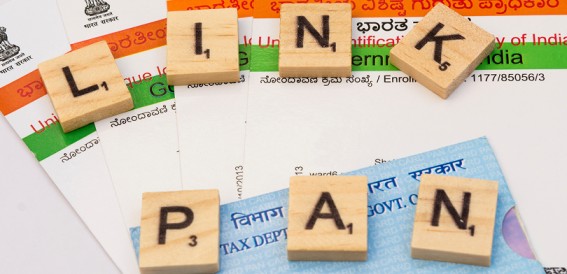Step into the world of Indian financial markets as we unravel the significance of National Securities Depository Limited (NSDL) and Central Depository Services Limited (CDSL). Journey with us through this brief overview to understand how these key players revolutionized securities trading and dematerialisation, shaping the landscape of modern investing.
Understanding NSDL and CDSL
What is NSDL (National Securities Depository Limited) ?
In India, the mention of National Securities Depository Limited is bound to come up when we talk about investments and securities. But what exactly is it?
The National Securities Depository Limited, or NSDL as it’s commonly known, is a critical institution in India’s financial landscape. Think of it as a digital vault where your investments, like shares and securities, are safely stored. Established in 1996, NSDL became the game-changer that ushered the Indian financial markets from an era of paper certificates to the world of electronic records.
Just like we deposit our money in banks and receive an account statement instead of a physical cash pile, NSDL allows us to hold our securities electronically in a demat account.
This transformation drastically reduced risks tied to the physical handling of documents, such as theft, damage, or forgery.
In the context of the average Indian investor, whenever you buy a share of a company, rather than getting a paper certificate, your ownership is updated and stored digitally with the National Securities Depository Limited. This makes transactions smoother, faster, and safer. All of this is overseen and regulated by the Securities and Exchange Board of India (SEBI) to ensure the utmost security for your investments.
What is CDSL(Central Depository Services Limited)?
Let’s say you’re an Indian resident eager to step into the investment world. Alongside the National Securities Depository Limited, you’ll also hear about Central Depository Services Limited. So, what’s the story here?
Central Depository Services (India) Limited, popularly known as CDSL, is akin to NSDL in many ways. Established a few years later, in 1999, CDSL was initiated by the Bombay Stock Exchange (BSE) along with several esteemed Indian banks. It’s another pillar in the infrastructure of India’s financial markets, providing a safe place for investors to hold their shares and securities electronically.
The main job of Central Depository Services Limited, much like National Securities Depositories Limited, is to maintain and update your ownership records of securities in an electronic form. No more bulky and risky paper certificates! Whenever you make a transaction, be it buying or selling, the records in your Demat account held with Central Depository Services Limited get updated accordingly.
A significant highlight is that these two institutions, NSDL and CDSL, have streamlined India’s investment process. Before their existence, trading in stocks meant dealing with physical share certificates, a cumbersome and slow process. Thanks to institutions like Central Depository Services Limited, even a common person can swiftly invest, trade, and manage their portfolio without drowning in paperwork.
So, next time you come across these names, know that they’re the silent guardians ensuring your investments are well-protected and easily accessible in the digital realm.
Begin your investing journey today. Your Demat account is the first step.
Difference between NSDL and CDSL
Both NSDL and CDSL are central securities depositories, which, in simple terms, are like banks for your securities, such as shares and bonds. Just as banks hold your money and provide account statements instead of handing you a physical stash of cash, these depositories hold your securities in electronic form, streamlining trading and reducing risks tied to physical handling.
But what distinguishes one from the other? Let’s find out!
| Features | NSDL | CDSL |
|---|---|---|
| Meaning | NSDL stands for National Securities Depository Limited. It’s a hub for electronically storing and trading securities. | CDSL, or Central Depository Services Limited, provides depository services to India’s securities market. |
| Year of Establishment | 1996 | 1999 |
| Market Share | NSDL boasts a larger share when considering the number of Demat accounts. | CDSL has a relatively smaller market share in terms of Demat accounts. |
| Depository Participants (DPs) | NSDL collaborates with a higher number of DPs compared to CDSL. | CDSL works with fewer DPs in comparison to NSDL. |
| Operating Markets | NSDL mainly operates in conjunction with the National Stock Exchange (NSE). | CDSL’s primary functioning market is the Bombay Stock Exchange (BSE). |
| DEMAT Account Number Format | An NSDL Demat account has a 14-character numeric code starting with “IN”. | In contrast, CDSL’s Demat account comprises a 16-digit numeric code. |
How Do Depositories Work?
In the Indian stock market, the role of depositories is comparable to the role banks play for your money. So, how do these depositories function?
Let’s say you’ve just purchased some shares of a company. In the past, you’d receive a physical certificate validating your ownership. Now, with depositories like NSDL and CDSL, these shares are held in an electronic or ‘dematerialised‘ form in the account that holds securities called a demat account.
However, these depositories don’t interact directly with individual investors like you and me. Instead, they interact through intermediaries called Depository Participants (DPs). DPs can be banks, financial institutions, or brokers, acting as the bridge between the investor and the depository.
When you, the investor, want to open a Demat account, you’d approach a DP. Once set up, any time you buy or sell shares, the records in your Demat account are updated accordingly, with the depository safeguarding these electronic records. In essence, with the help of DPs, these depositories have transformed and simplified the way Indians trade in stocks, making it more accessible, efficient, and secure for the common man.
Services Offered by NSDL and CDSL
In the simplex sphere of Indian finance, NSDL and CDSL shine as trustworthy custodians of our cherished securities. Beyond the essential task of electronically holding our shares and bonds, what range of services do these giants offer?
Both NSDL and CDSL stand at the forefront of dematerialising securities – that is, transforming physical shares into a convenient electronic format.
Which is Better: CDSL or NSDL?
The quintessential question: NSDL or CDSL, which one is better? Navigating this concept isn’t a straightforward affair. Both are titans in their own way, with unique offerings that underscore India’s dynamic financial landscape.
National Securities Depository Limited, India’s pioneering depository, holds the prestige of being the first-mover, bolstered by an extensive network and a dominant market share in terms of Demat accounts. Conversely, Central Depository Services Limited, with the Bombay Stock Exchange as its backbone, has meticulously sculpted its reputation, emphasizing robustness and lucid transparency.
So, how does one decide? Imagine you’re deciding between two giants from the same industry. Both offer almost identical services with their nuances, but the choice often reflects individual preferences.
Some factors that could influence your decision include:
- Service Quality: While both are stellar, personal experiences might sway one’s opinion.
- Broker Affiliation: Sometimes, your broker or financial institution might have a deeper association with one over the other.
- Operational Costs: The charges for account maintenance, transactions, etc., could differ slightly between the two, influencing a cost-conscious decision.
Remember, both NSDL and CDSL operate under SEBI’s regulations, which guarantee adherence to the standards of safety, service, and efficiency. The choice is less about ‘better’ and more about what aligns best with your requirements and comfort.




















